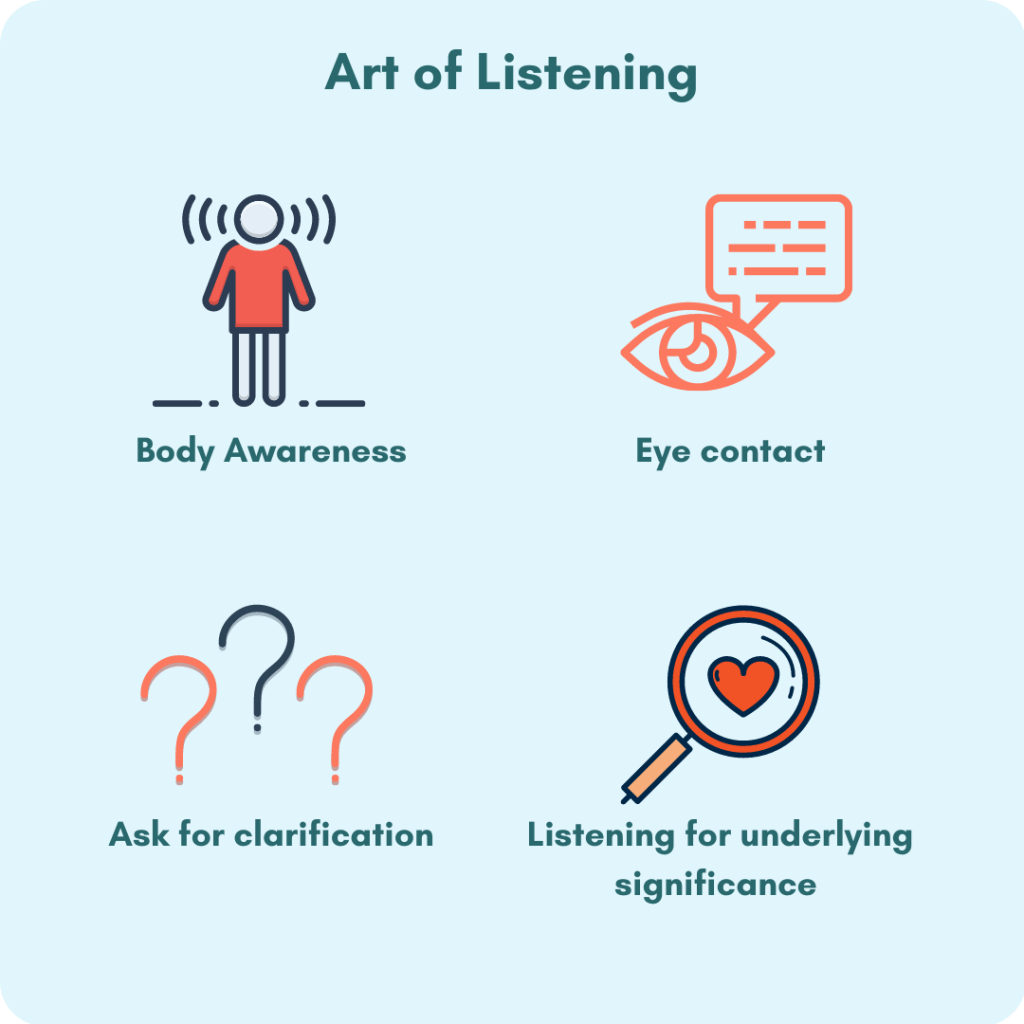4 Tips for Practicing Mindful Compassion and Gratitude

Be compassionate and grateful – seems to be a common mantra for a good many years. But I would call it “a science-backed mantra” based on a decade of research evidence. The research shows that practicing compassion and gratitude can make life way easier both mentally and physically.
As the global pandemic continues to wreak havoc, it can feel challenging and uncertain as the holidays approach. But, thankfully, we got you covered. Here’re 4 tips to develop mindful compassion and cooperation, the art of listening, and gratitude.
Before we move into the tips and tricks of compassion and gratitude, let’s understand the art of the brain and why it’s called an interpersonal organ.
Research suggests that training compassionate responses can increase the resiliency to aversive events. The prefrontal cortex in our brain supports our ability to take in communication signals from others. Empathy for oneself as well as for others is also supported by this area of the brain. By the practice of mindfulness, you can develop the ability to become more in tune with ourselves. This can help you to stay open with others during difficult times.
Isn’t it amazing that our brain is built to connect with others? This allows you to bring a stronger awareness of who you are and how your mind, body, and emotions work together. This process allows you to transfer that information and show that compassion to others.
Here’re 4 tips to help you practice mindful compassion and gratitude during these challenging times
1. Prioritize self-compassion
I’m sure you are familiar with the classic airline safety instruction, “If the oxygen masks deploy, secure your mask before assisting the person next to you.” This “self-care first” analogy can also be applied to the practice of mindful compassion.
It is important to understand your thoughts, emotions, and habits. It builds a foundation for understanding others. Prioritizing self-awareness and compassion develops your ability to be more patient, and compassionate with the people who surround you.
2. Practice the art of listening
Doesn’t it feel good to be listened to? Being a skillful and empathetic listener is a quality that deepens our relationships and connection with others. It can enable a better understanding of people’s experiences, ideas, and values.
Remember a time when you needed to share something – and the person you spoke with listened carefully, deeply, and with their heart. It does feel satisfying and comforting, when we feel that kind of attention from someone. Often, it also feels good to give that type of attention to someone else.
Next time you find yourself in a conversation with someone, consider the following 4 mindful listening practices:

Body awareness
It is important to be aware of our emotional responses while listening to others, even though it may seem like you are drifting your attention.
Eye contact
Often we may get sidetracked by a sound, but it is a wonderful way to direct your attention on the person speaking, if there are too many distractions around you.
Listen for the underlying significance
Listening is not just about the verbal sound, but paying attention to whether the person is asking for advice or feedback. You can even notice, if there are emotions at heart while they are sharing.
Ask for clarification
If you feel like you are not able to understand the underlying significance, you can ask clarifying questions. For example, you can ask, “Am I understanding what you’re saying?”
3. Check-in with your intention
Ever said something and immediately wished you could take it back? Have you ever declined to speak up when you needed to? – We all might have experienced these.
Next time, try to bring mindfulness to speech. It might be different to be aware of every word, as our mouths may seem faster than our awareness. It doesn’t mean you slow down, but pay attention to the intention – “why we say the things we say”. Check-in if the intention is to be harsh or mean, gossip, any fabrication, or if it seemed unnecessary? This awareness allows you to be mindful of “what we speak” and “why we say the things we say”.
4. Put gratitude first
Gratitude is defined by researchers as a “social glue” that strengthens any relationship and is an important backbone for the society at large. Daily gratitude lists have proven to be effective.
It is one of the best-understood mechanisms that aid the forming and maintenance of the most important relationships of our lives.
It is important to be grateful to the people who we care about and you can count on for our coming days. Research suggests that it is important to integrate gratitude for maintaining any form of relationship, be it with loved ones by expressing thanks daily!
It can be as simple as: “Thank you. I so appreciate you being willing to help me with this task”, “I am so grateful for the opportunity, to be honest with you”, or “Thank you for giving me the chance to speak”.
Takeaway!
- Be mindful of your emotions and intentions while interacting with others.
- Try to have a flow of a generous heart, so we can share the joy and difficulties.
- Practice self-compassion and be mindful of how much you absorb in conversations.
HAPPY THANKSGIVING WEEKEND!
Looking to sleep better, eat a bit healthier, move more, build a practice of self-care, or just want to feel more energy each day? Let Shapa be your virtual coach. Shapa focuses your program based on YOUR lifestyle and YOUR goals so you can build healthy habits and achieve lasting results. Learn more about the Shapa difference
About the author:
Sujatha is the study manager and content creator extraordinaire on the Shapa Health team. With a Bachelor’s in Psychology and Master’s in Clinical Psychology from India, she furthered her academic skills in Applied Behavior Analysis from Ball State University, Indiana, USA. Currently, she resides in Chandler, Arizona. She has 4+ years of expertise as a mental health professional trained in psychometrics and psychotherapy working with children, adolescents and adults. Over the past 2 years, Sujatha developed a passion for mindful living, neuroscience research, human behavior and decision making, and is driven by curiosity and gratitude. As part of the Shapa Health team she designs personalized missions utilizing behavioral science and mindfulness techniques to improve the personal health journey of the Shapa community. When not at work, she enjoys baking, hiking and spending time with family. Connect with Sujatha on LinkedIn.




